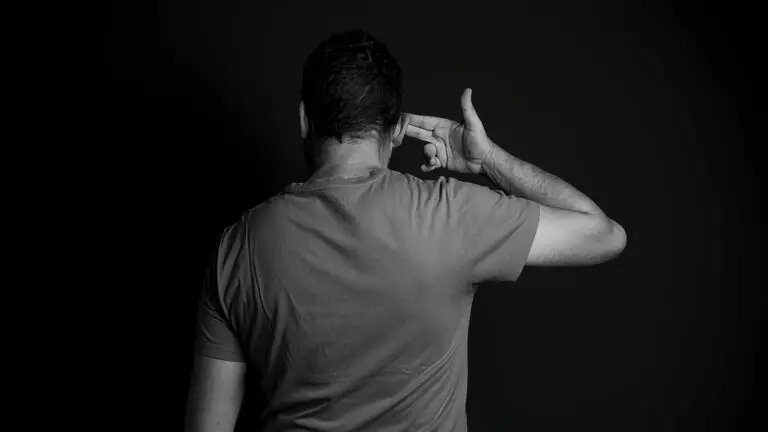
The recently released horror movie Weapons reminded me of how easily human beings, even the most innocent among us, can be shaped into living instruments of death by the powerful and manipulative. Yet, true to Hollywood’s habits, the story ultimately resorts to murder as the only answer to unchecked violence. It is also telling that even liberal storytellers often fall back on the old pattern of destroying the “witch” in order to protect the innocent.
In recent weeks, the world has witnessed a disturbing series of violent acts committed by individuals of different backgrounds. Robin Westman, a transgender individual, shot and killed two children at a Catholic church in Minneapolis. Decarlos Brown Jr., a black man, slit the throat of a Ukrainian woman in a subway train in Charlotte, North Carolina. Daniel Raab, an Israeli sniper, shot and killed two unarmed Palestinians in Gaza from a distance. At first glance these killings appear unrelated, yet the response to them has followed a familiar pattern. Each event has been seized upon to demonize entire groups of people. Westman’s crime has been used to attack transgenders, Brown’s crime to strike blacks, and Raab’s crime to denounce Israelis.
There is an element of truth in these targeted narratives, but the social solution promoted by governments, commentators, and influencers is not unity but scapegoating. René Girard, the French thinker who analyzed the origins of human violence, showed that scapegoating is one of the oldest strategies societies use to manage chaos. By directing rage onto one individual or group, communities in crisis achieve temporary unity. Yet the world after Christ is different. The Gospels expose the mechanism of scapegoating and reveal its injustice. In modern societies haunted by this revelation, scapegoating no longer works to bring peace. It only intensifies division and creates new cycles of hatred.
The Apostle Paul wrote in Ephesians 6:12: “For we wrestle not against flesh and blood, but against principalities, against powers, against the rulers of the darkness of this world, against spiritual wickedness in high places.” This verse captures the heart of the matter. Evil does not lie in particular races, genders, or nationalities. It emerges from the spiritual disorder that afflicts all human beings. The crucifixion of Christ shows us that when societies unite around a scapegoat, they are actually revealing their inability to face their own violence. Christ’s death unmasks the futility of catharsis through sacrifice. What once produced unity now generates deeper fragmentation.
Does this mean we should release criminals and abandon justice? Not at all. But we are called to recognize that the roots of violence go beyond the individual acts themselves. When society tolerates systemic evils such as economic exploitation, unjust wars, family breakdown, idolatry, and the neglect of children and the elderly, it creates fertile ground for chaotic violence. To laugh off or normalize such violence is to accept a world where disorder becomes the new normal.
The cases of Westman, Brown, and Raab illustrate this point. Westman left behind a drawing of himself staring into a mirror where a demon stared back. His weapons were marked with contradictory ideological slogans, all of which called for death to multiply. Brown, a demented racist let loose by an equally demented justice system, claimed that an external force compelled him to commit his crime. Raab’s IDF unit proudly carries insignia marked with devil’s horns and a tail. Whether conscious or not, satanic imagery permeates the killers’ lives and actions. These symbols call attention to how violence often carries with it a demonic contagion, pulling others into the cycle of destruction.
To confront such violence, we must think like exorcists. A true exorcist does not scapegoat or destroy the possessed but seeks to drive out the evil. In the same way, society must learn to separate human beings from the destructive forces that consume them. Empathy must extend not only to the victims of violence but also to the perpetrators, who are often themselves trapped in cycles of possession and despair (Matthew 5:44, Romans 12:14, 1 Peter 3:9). At the same time, we must confront the broader structures of socially accepted violence that legitimize disorder (James 4:7, Jude 1:9, Zachariah 3:2). The existence of whites, blacks, Israelis, or transgender people is not the cause of evil. The real cause is sin, which in biblical terms means “missing the mark.” The mark is theosis, the transformation into Christlike humanity.
Modern culture insists that human beings can become good without God. The killings we witness show the limits of that belief. Without a transcendent source of goodness, we are left with tribalism, scapegoating, and endless cycles of revenge. Modernity reduces people to categories of race, gender, politics, or creed, which makes scapegoating easier. The Christian revelation offers a different perspective: each human being is created in the image of God, not a stereotype or an enemy.
Neither racial supremacy, nor Zionism, nor political ideology can save us from violence. They are all forms of bondage to materialism. Violence is becoming normalized in plain sight. Charlie Kirk was recently shot dead in public, and many on the political left cheered the act. This normalization of chaos is precisely what the cross of Christ warns us against. The anthropological truth of the crucifixion lies before us: scapegoating will not heal our societies, and violence cannot be redeemed by more violence. Unless we recognize this truth, we ignore it at our own peril.

Articles posted on LCI represent a broad range of views from authors who identify as both Christian and libertarian. Of course, not everyone will agree with every article, and not every article represents an official position from LCI. Please direct any inquiries regarding the specifics of the article to the author.
Did you read this in a non-English version? We would be grateful for your feedback on our auto-translation software.



















































*by signing up, you also agree to get weekly updates to our newsletter
Sign up and receive updates any day we publish a new article or podcast episode!